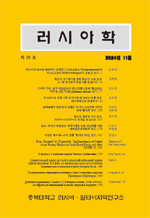This study examines the shifting labor experiences of undocumented Central Asian women workers in South Korea during and after the COVID-19 pandemic, exploring how these workers transitioned from being regarded as “essential” laborers in times of crisis to “disposable” as the labor market rebounded. Drawing on Labor Market Segmentation and Intersectionality theories, this research analyzes how gender, ethnicity, and age intersect to shape the precarious employment conditions of undocumented women in South Korea’s secondary labor market. Based on in-depth interviews and participant observations, findings reveal that while labor shortages during the pandemic temporarily boosted job stability and access to work, undocumented women migrants were often subjected to long hours, low wages, and a lack of legal protections. In the post-pandemic period, renewed government crackdowns and increased competition from documented migrants exacerbated job insecurity and diminished wages, pushing these women into even more marginalized positions. By highlighting the experiences of undocumented migrant women, this study enhances understanding of South Korea's fluctuating reliance on and marginalization of undocumented labor, underscoring the need for more inclusive labor protections.
Ⅰ. Introduction
Ⅱ. Labor Migration Policies and Undocumented Migrant Workers in the Korean Labor Market
Ⅲ. The Segmented Labor Market and Intersectionality: Understanding Undocumented Women Migrant Workers
Ⅳ. Research Methods
Ⅴ. Employment Security and Unequal Protection during the Pandemic
Ⅵ. Barriers to Employment and Intersectional Challenges after the Pandemic
Ⅶ. Conclusion
References
